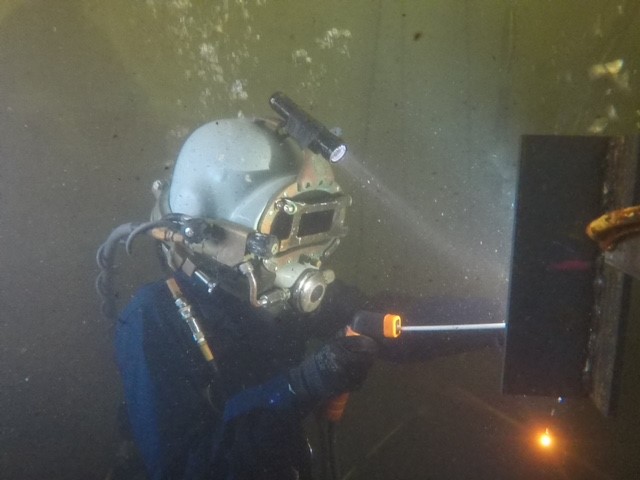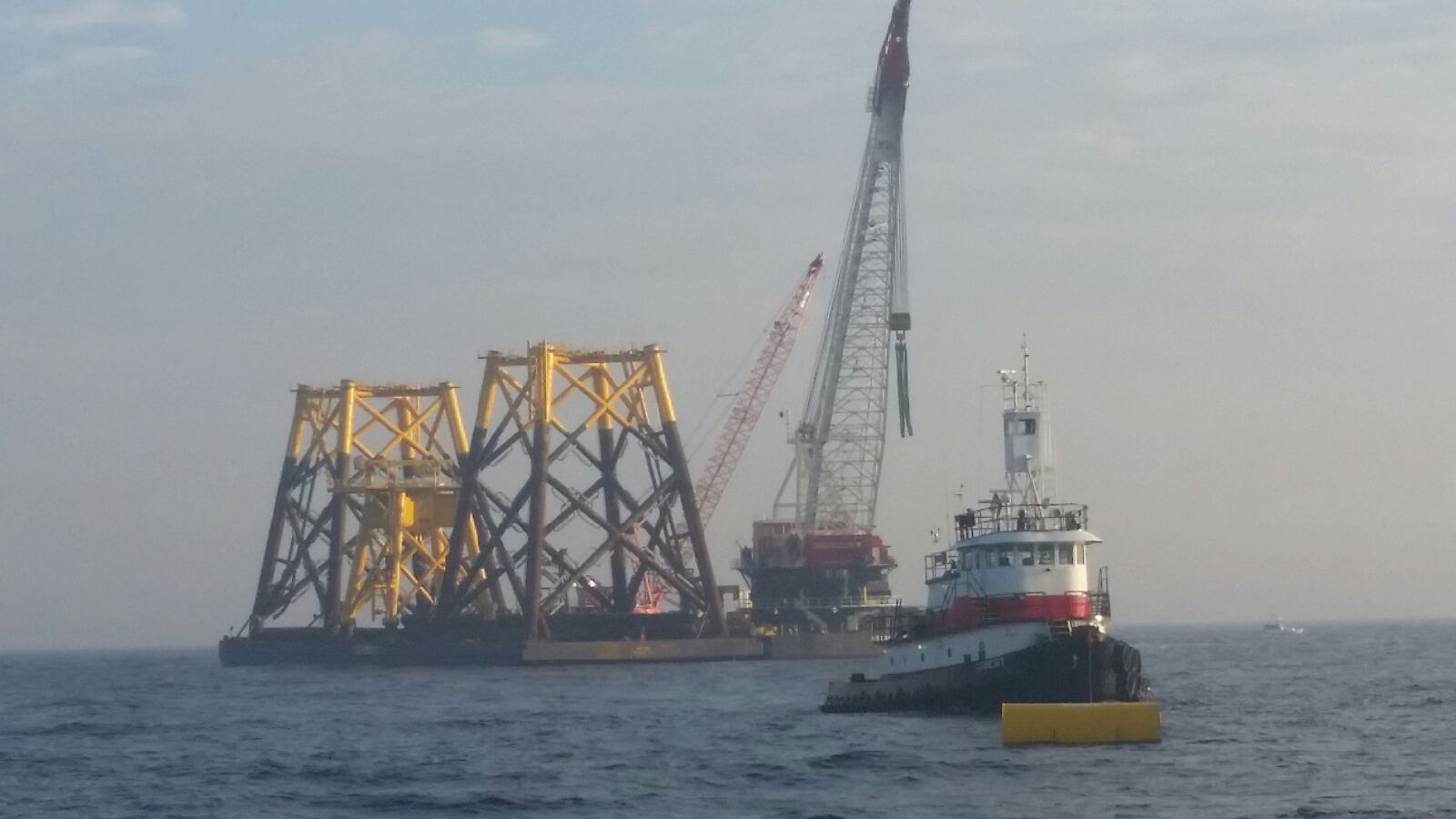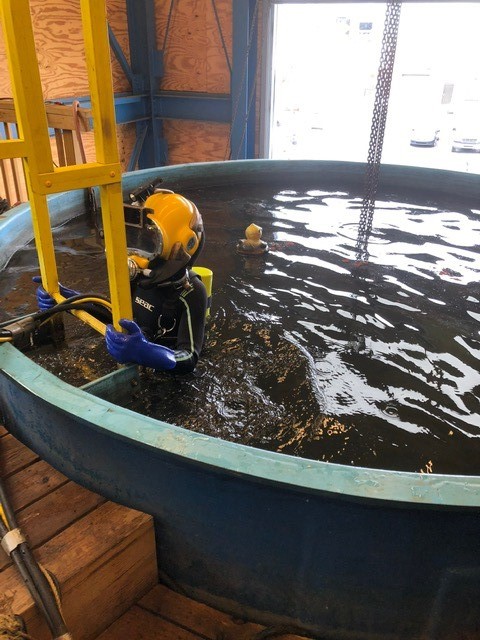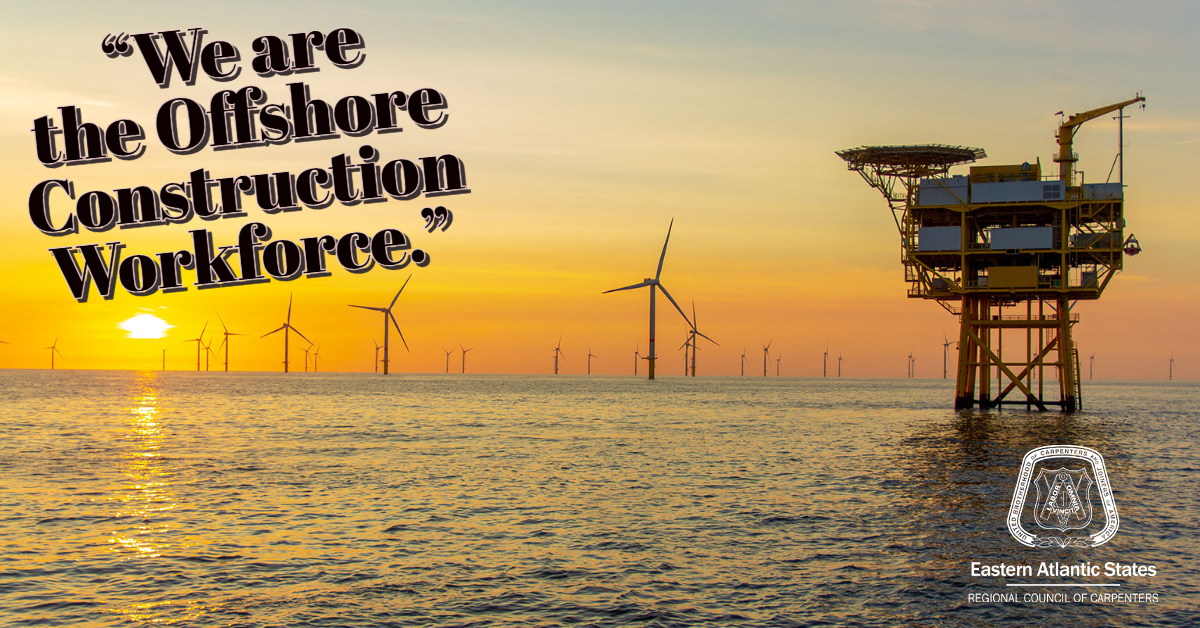The research and development of renewable energy sources is rapidly changing the world. Offshore Wind Farms are a growing addition to the industry, showing the capability to generate two-times the combined capacity of all electric power plants in the U.S. The assembly of these farm’s requires a highly skilled and trained workforce that only Union Carpenters can provide.
Offshore Wind began in 1991 when countries across Europe and Asia saw the need to tackle climate change and provide more sources for energy. It has been projected that Offshore Wind has the potential to generate 2 thousand gigawatts (GW) per year.

Diver and Welder in the diving tank at the Philadelphia Carpenters Training Center
The Offshore Wind developers are seeking out contractors to partner with, but many have a common misconception that an entirely new workforce must be developed in order to provide the best and most efficient service. This notion is one that the Carpenters Union are striving to prove otherwise.
The Eastern Atlantic States Regional Council of Carpenters (EASRCC) is taking the measures to ensure apprentices and journeymen have the best training in the world for the Offshore Wind industry. Investment has been made by the union at their Hammonton, NJ training center to enhance the pile driving training and provide a more hands-on experience needed for Offshore Wind construction.
“Developers are mandating contractors to gain the experience necessary to have vast knowledge in the Offshore Wind industry,” explained Olsen. Atlantic Cape Community College was awarded with $3 Million to build a Global Wind Organizational (GWO) training facility. This program will provide a great opportunity to receive experience in fire awareness, offshore safety, first aid, working at heights, manual handling, sea survival and fitness. “This experience is critical in the Offshore Wind industry and developers have made it known how crucial it is for them to have contractors who are committed, qualified and prepared,” stated Olsen.
Council Representative Michael Conner explained, “I have noticed an increased confidence with our apprentices that are working for our signatory contractors.” Conner continued, “We have apprentices in their 2nd, 3rd and 4th year experiencing realistic situations in a controlled and safe environment, gaining the confidence and skill necessary to complete the project in a safe and timely fashion.”
Historically, these job site conditions were encountered for the first time at the project site, but with the enhanced training provided, members can be substantially more prepared. Conner stated, “Contractors are extremely satisfied with the investment that the EASRCC and the UBC have provided for the apprentices and Journeymen.”
“The Carpenters Union has been training our members on pile driving, drilling, diving and foundation for over a century,” stated Senior Council Representative Olaf Olsen. “These are trades that the Carpenters are highly trained in and I’m confident in whomever represents our Council on these Offshore Wind projects would exceed expectations. We are the Offshore Construction workforce.”
The United Brotherhood of Carpenters and Joiners of America represent a third of all commercial divers in the United States.

Block Island Offshore Wind Farm off the coast of Rhode Island
The Offshore Wind industry is rapidly growing across the northeast and even worldwide. Developers are taking swift action to locate new areas to construct Offshore Wind Farms and contractors must act quickly to meet their criteria.
In 2-4 years time, the nacelles, towers and blades are all expected to be built locally in the United States and eliminate the need for transportation costs across the Atlantic Ocean.
Rapidly changing industries, such as Offshore Wind, require employers to work and communicate closely with their labor partners; Resulting in the United Brotherhood of Carpenters developing the UBC Collaborative Leadership program. The leadership Union Carpenters bring to the table is the quintessential motive for a partnership.
All council staff have worked through service training that allow them to collaborate with business partners to promote positive growth in an emerging industry. The need for qualified jobsite leadership is essential; The UBC foreman program prepares and develops the interpersonal skills necessary for maximizing the human capitol on projects and was designed to increase business acumen.

Divers tank in Philadelphia, PA at the Carpenters Training Center
The UBC, Millwrights, Commercial Divers and Pile Drivers have prepared the workforce. “The opportunities are there, Offshore projects are plentiful, we’ve been training our members for over 100 years, we are the Offshore Construction workforce. We are ready to meet the challenges,” said Olsen.

 ">
">